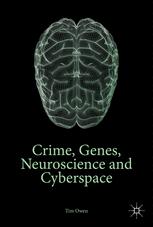

Most ebook files are in PDF format, so you can easily read them using various software such as Foxit Reader or directly on the Google Chrome browser.
Some ebook files are released by publishers in other formats such as .awz, .mobi, .epub, .fb2, etc. You may need to install specific software to read these formats on mobile/PC, such as Calibre.
Please read the tutorial at this link: https://ebookbell.com/faq
We offer FREE conversion to the popular formats you request; however, this may take some time. Therefore, right after payment, please email us, and we will try to provide the service as quickly as possible.
For some exceptional file formats or broken links (if any), please refrain from opening any disputes. Instead, email us first, and we will try to assist within a maximum of 6 hours.
EbookBell Team

0.0
0 reviewsThis book applies Owen’s unique genetic-social framework to the study of crime and criminal behaviour, with an emphasis on cybercrime. Moving beyond challenges which confront contemporary criminological theorizing such as: the stagnation of critical criminology, the relativistic nihilism of the ‘cultural turn’, posthumanism, and virtual criminology, the author codifies and ‘applies’ the latest version of the framework to the study of crime, both in and out of cyberspace.
Drawing upon evolutionary psychology, behavioural genetics and the philosophy of Heidegger, he introduces new terms such as ‘Neuro-Agency’ and notions of Embodied Cognition into criminological theorizing. Adopting a soft compatibilist approach to free-will, and Realist ontology, Owen’s meta-theoretical focus provides a new direction for criminological theorizing, in particular in the direction of the conceptualization and prediction of cyber violence. Exciting and timely, this book will appeal to scholars and advanced students of criminology, law, sociology, social policy, psychology, philosophy, policing and forensic investigation.